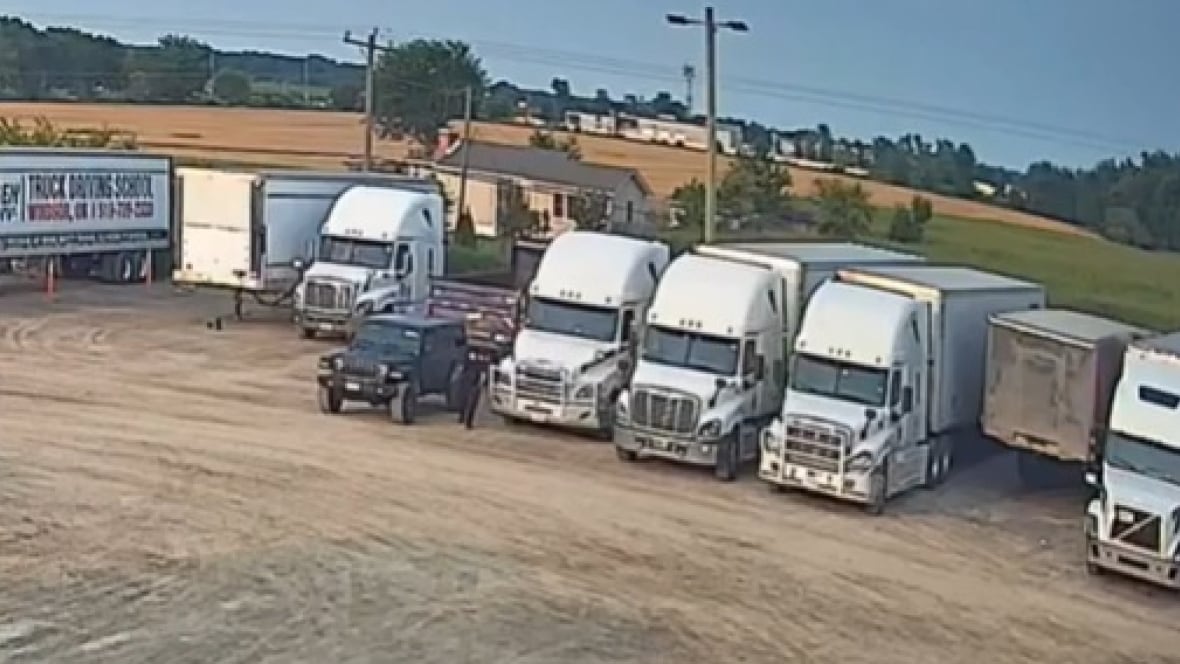Top Stories
Urgent Update: $222K Beef Stolen from Windsor Truck, Where Is It?

URGENT UPDATE: A staggering $222,000 worth of beef has been stolen from a truck in Windsor, Ontario, and authorities are racing to uncover its whereabouts. The incident, which took place a month ago, involved 530 boxes of boneless beef chuck roast that were last tracked heading towards Highway 401, according to police reports released last week.
This brazen heist raises critical questions: Where has the meat gone? Experts warn that if not recovered soon, it may already be on grocery store shelves or served in restaurants across the region. Stephen Laskowski, president of the Ontario Trucking Alliance, highlights the organized nature of these thefts, stating, “They have a market. It’s targeted, planned, and then distributed.”
The alarming trend of meat theft is not isolated to Windsor. Recent data from CargoNet, which monitors cargo theft across Canada and the U.S., reveals a shocking 242% increase in meat thefts compared to the previous year. Incidents like the $230,000 beef truck theft in Brooks, Alberta, five years ago further illustrate the rising tide of organized crime targeting perishable goods.
Gary Sands, senior vice-president of the Canadian Federation of Independent Grocers, firmly denies that stolen meat makes its way into legitimate grocery stores. “That’s just not going to happen in a grocery store in this country,” Sands stated. He emphasized that grocers maintain long-standing relationships with reputable suppliers, making it improbable for them to unknowingly buy stolen goods.
However, the black market for meat is thriving. Mark von Schellwitz, vice-president at Restaurants Canada, acknowledged that while rare, some attempts may be made to sell stolen products to restaurants. “The vast majority of the time, our industry will not only say no, but they’ll basically say, ‘this is really unethical for you to be here,'” he said.
The Canadian Food Inspection Agency (CFIA) has affirmed that food traceability is crucial, requiring businesses to track their products meticulously. However, Windsor police have not provided updates on the ongoing investigation or additional details about the heist, leaving many unanswered questions regarding the fate of the stolen beef.
As the investigation continues, Laskowski indicates that law enforcement faces significant challenges due to underfunding in cargo theft prevention. “They don’t have enough resources, both in manpower and the type of resources that they would require to fight crime,” he stated.
The implications of this theft extend beyond monetary loss; they touch on food safety and consumer trust. As the beef industry struggles with rising prices, the demand for meat continues to put it at risk.
What happens next is critical. With authorities under pressure and the meat potentially circulating through illicit channels, the need for vigilance in food supply chains has never been more urgent. As this story develops, consumers will be left wondering about the integrity of the food they purchase and the measures in place to protect it.
Stay tuned for updates as police investigate this alarming case and the broader implications of the growing trend in meat theft.
-

 World3 months ago
World3 months agoScientists Unearth Ancient Antarctic Ice to Unlock Climate Secrets
-

 Entertainment3 months ago
Entertainment3 months agoTrump and McCormick to Announce $70 Billion Energy Investments
-

 Lifestyle3 months ago
Lifestyle3 months agoTransLink Launches Food Truck Program to Boost Revenue in Vancouver
-

 Science3 months ago
Science3 months agoFour Astronauts Return to Earth After International Space Station Mission
-

 Technology2 months ago
Technology2 months agoApple Notes Enhances Functionality with Markdown Support in macOS 26
-

 Top Stories1 week ago
Top Stories1 week agoUrgent Update: Fatal Crash on Highway 99 Claims Life of Pitt Meadows Man
-

 Sports3 months ago
Sports3 months agoSearch Underway for Missing Hunter Amid Hokkaido Bear Emergency
-

 Politics2 months ago
Politics2 months agoUkrainian Tennis Star Elina Svitolina Faces Death Threats Online
-

 Technology3 months ago
Technology3 months agoFrosthaven Launches Early Access on July 31, 2025
-

 Politics3 months ago
Politics3 months agoCarney Engages First Nations Leaders at Development Law Summit
-

 Entertainment3 months ago
Entertainment3 months agoCalgary Theatre Troupe Revives Magic at Winnipeg Fringe Festival
-

 Politics1 week ago
Politics1 week agoShutdown Reflects Democratic Struggles Amid Economic Concerns



















